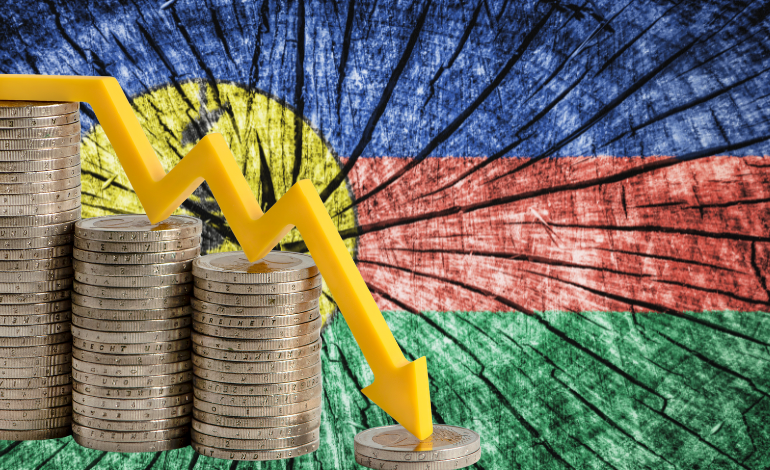New Caledonia’s economy contracted by 13.5 per cent in 2024, according to official figures released at the end of September, underscoring the severity of its ongoing financial crisis. The latest data revealed a sharp drop in GDP, with tourism and employment particularly hard hit.
The contraction is one of the steepest in the territory’s modern history, reflecting the combined impact of political instability, declining nickel exports, and weak external demand. Tourism, once a reliable source of revenue, has yet to recover fully from the pandemic, and recent unrest has further discouraged visitors. The job market has deteriorated, with unemployment rising and businesses closing under financial strain.
Observers say the crisis has been compounded by a decline in global nickel prices, a commodity that underpins New Caledonia’s economy. With international competition increasing, local producers are struggling to maintain output levels and profitability. Fiscal pressures on the government have also intensified, raising concerns about the territory’s ability to sustain essential services and social spending.
The International Monetary Fund and French authorities have urged reforms to strengthen public finances and diversify the economy. However, political uncertainty has made it difficult to secure consensus on structural changes. Analysts argue that unless new industries are developed, New Caledonia will remain vulnerable to external shocks.
Community leaders have warned of rising social tensions as unemployment grows, particularly among youth. Business groups have called for emergency measures to support struggling enterprises and incentivise investment. Tourism operators stress that rebuilding international confidence will be key, but acknowledge this will take time.
The 13.5 per cent contraction is a stark reminder of the challenges facing the French Pacific territory. Without significant reforms and renewed investment, prospects for recovery remain fragile.



